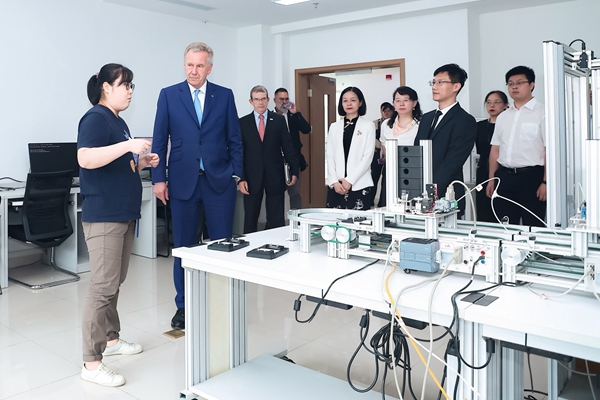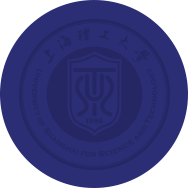Serving as an important bridge between Chinese universities and Germany, the Sino-German College at the University of Shanghai for Science and Technology is creating a better future for young talent and opening a new chapter in exchange and development in the context of the Belt and Road Initiative.
As early as the Enlightenment — defined as the period of rigorous scientific, political and philosophical discourse that characterized European society during the 18th century — from the late 17th century to the ending of the Napoleonic wars in 1815, the German people have shown curiosity and interest in China.
German mathematician Gottfried Wilhelm Leibniz (1646-1716) learned and studied Chinese history from the narratives of Martino Martini, an Italian Jesuit missionary who spent time in China and published in Munich one of his four influential books about the country. Leibniz went on to propose suggestions for the comprehensive improvement of the political, social and economic conditions in Europe.
About 200 years later, German geographer Alexander von Humboldt traveled to the inland of China, conducting geographical and geological surveys and recording various aspects of Chinese people's lives. Through his in-depth study of China and Chinese stories, he profoundly influenced the German understanding of the Silk Road, one of the lesser-known but important stories of Sino-German exchanges.
The BRI, which is based on infrastructure construction, is not new to Europe as such projects had been a typical economic model for rising European countries that hoped to cross the Eurasian continent.
Professor Marcus Hernig, strategic development consultant of the Sino-German College, believes that there are at least three possibilities for Germany to participate in the BRI: participating in financing or investing in industries that are meaningful and have high returns within the framework of the Asian Infrastructure Investment Bank; providing support for some projects or complete sets of infrastructure schemes, and helping German small and medium-sized enterprises find new markets in Asia and Africa; and creating a modern version of the Hanseatic League, a medieval commercial and defensive confederation of merchant guilds and market towns in Central and Northern Europe, within the eurozone.
The history of German trade predates that of Britain, Portugal, Spain and the Netherlands. The formation of the Hanseatic League laid the foundation for German manufacturing in Northern Europe from the 12th to the 16th century and influenced the development of the geopolitical pattern in Western and Northern Europe.
The "H" in the Hanseatic League stands for trading cities. Similar to China's Silk Road, the Hanseatic League integrated the land transportation routes, such as the salt road through Lueneburg, Germany, or the trade route through Cologne, the largest city in the Westphalia region of Germany, into the maritime trade routes of the Baltic Sea.
The Hanseatic League connected land and sea, forming a network of belts and roads. At its peak, more than 160 cities joined the league and it made history for hundreds of years.
Today, globalization has brought about an imbalance in global development. Professor Hernig believes that the BRI is an important way to address this. If the BRI can be connected with the Hanseatic League, it would create a broad, future-oriented talent alliance involving various industries such as trade, the internet and intelligent manufacturing. Young talents with solid language and cross-cultural communication skills can promote the common prosperity of Eurasia, he said.
As a sister city of Shanghai, Hamburg provides many opportunities of business internships between China and Germany. Shanghai is also accelerating communication and exchanges between universities and the German business community.
Many German companies in Shanghai are looking for high-quality young people and hope to cooperate with partner universities to provide joint training. The Sino-German College has launched a dual-track program with enterprises, strengthening the connection between Chinese higher education and German enterprises in Shanghai and creating better career development opportunities for young people.

http://study.edu.sh.gov.cn/en/nc/news/2023-10-18/11211.html
Source from (China Daily) | Oct 18, 2023

 Home
·
News & Events
·
Content
Home
·
News & Events
·
Content

